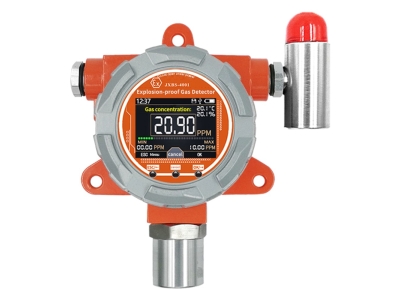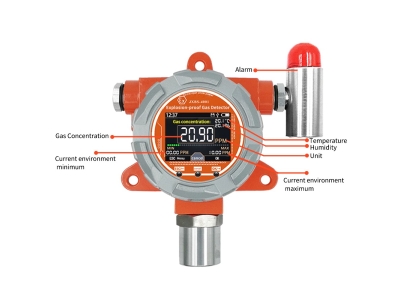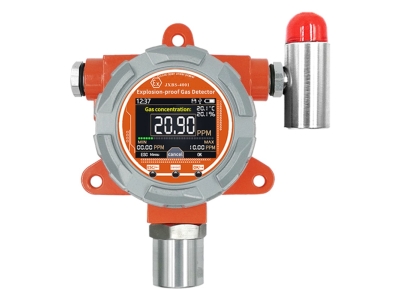In many industries, gas detection is a vital component of maintaining safety in the workplace. Toxic gases and explosive vapors are always potential hazards, and real-time detection is crucial to protecting employees and avoiding harm. Advanced gas detectors are an evolving technology that has revolutionized how we keep our workplaces safe. This article will explore advanced gas detectors' features and applications and how they can enhance safety in various industrial environments.
What Are Advanced Gas Detectors?
Advanced gas detectors refer to a class of gas detection systems that utilize cutting-edge technology to improve their sensitivity, accuracy, and reliability over traditional gas detectors. The most advanced gas detectors leverage technologies such as infrared, electrochemical, photoionization, ultrasonic, or semiconductor sensors to detect hazardous gases accurately. They also incorporate user-friendly interfaces for convenient alerting, data logging, and remote access.
Features of Advanced Gas Detectors

Compared to traditional gas detectors, advanced gas detectors offer several significant advantages. Here are some of the critical features of advanced gas detectors:
Improved Accuracy: Advanced gas detectors use high-precision sensors, which provide greater accuracy and faster response times to hazardous gases. These sensors can detect lower levels of gases than traditional detectors, reducing the risk of false negatives and ensuring that workers are alerted promptly.
Real-Time Monitoring: With advanced gas detectors' real-time monitoring capabilities, users receive immediate notifications of any identified risks. This quick response helps avoid hazards and provides valuable insights into the patterns and nature of gas emissions.
Data Logging and Reporting: Advanced detectors can track and record gas concentrations and exposure time automatically. This valuable information can be useful for hazard analysis, compliance reporting, and training purposes.
Wireless Technology: Many advanced gas detectors incorporate wireless communication to enable remote operation, updates, and alerts. It allows managers to track multiple parameters at once and respond quickly to emergencies.
Applications of Advanced Gas Detectors

Advanced gas detectors are suitable for a range of industrial applications where hazardous gases concentrations may pose risks. Here are some of the commonly practiced industries and applications:
Oil and Gas Industry: In the oil and gas industry, hydrocarbons, oxygen-depleted atmospheres, hydrogen sulfide, carbon monoxide, and other toxic gases can present significant safety hazards. Advanced gas detectors are commonly used to monitor gas leaks in facilities and pipelines, underground storage tanks, drilling rigs, and other outdoor equipment.
Chemical Industry: In the chemical industry, numerous toxic gases and volatile organic compounds may be produced in manufacturing processes or materials handling operations. Advanced gas detectors help monitor the air quality in various parts of a facility and alert workers and managers if there is an abnormal concentration of any hazardous gas.
Mining Industry: Mines are subject to gas buildup due to natural sources, such as underground deposits of methane gas. However, mining activity including blasting, drilling, and mining cause the release of dust, silica, mercury vapor, and diesel particulate matter (DPM) that pose health risks to workers. Advanced gas monitors can detect these hazardous gases and alert miners and managers to evacuate the mine or move to safety securely.
Laboratories and Chemical Stockrooms: Labs and chemical distribution centers often store and use flammable or toxic gases. In these settings, advanced gas detectors help ensure laboratory safety by detecting any escaped gases rapidly and preventing accidents.
Incorporating Advanced Gas Detectors for Safe Operations
In summary, advanced gas detectors play a crucial role in enhancing workplace safety. They provide early detection of hazardous gases, thereby diminishing the risk of fire, explosion, or exposure to toxic chemicals. The benefits of advanced gas detectors extend beyond just protecting personal health and safety; they also help organizations comply with government regulations, avoid costly fines, prevent damage to equipment and lessen the environmental impact of unintentional gas emissions.
Companies should evaluate their needs and prioritise requirements when selecting suitable gas detection technology. Such equipment should be part of a broader safety programme that includes policies, procedures, training, and drills designed to minimize workplace injuries. By adopting advanced gas detectors and supporting operational measures, organisations can maintain safer work environments and protect their employees from harm.







